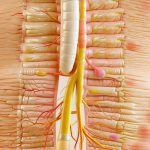The intricate dance between our hormones, urinary system, and overall well-being is profoundly influenced by the fats we consume. For decades, fat was demonized as a dietary villain, but this narrative has dramatically shifted as scientific understanding evolved. We now recognize that healthy fats are not just essential for energy and cellular function; they’re foundational to hormone production, which in turn dictates everything from mood and metabolism to reproductive health and the delicate balance within our urinary system. A deficiency in these vital nutrients can disrupt hormonal signaling, leading to a cascade of imbalances that manifest as diverse symptoms – impacting kidney function, bladder control, and overall fluid regulation.
This connection between dietary fats, hormone synthesis, and urinary health is often overlooked, yet it’s incredibly powerful. Hormones act as chemical messengers, traveling throughout the body via the bloodstream to regulate various physiological processes. The kidneys and bladder, key components of the urinary system, are heavily influenced by hormonal signals, particularly those from estrogen, progesterone, testosterone, cortisol, and aldosterone. These hormones impact fluid balance, electrolyte regulation, and even the structure and function of the bladder itself. Therefore, providing the body with the building blocks it needs to create these hormones—namely, healthy fats—is crucial for maintaining optimal urinary health and preventing imbalances that can lead to issues like incontinence, frequent urination, or kidney stress. Understanding daily habits is also key in this process.
The Role of Essential Fatty Acids in Hormone Production
Essential fatty acids (EFAs) – omega-3 and omega-6 – are aptly named because the body cannot produce them on its own; we must obtain them through diet. These fats aren’t just fuel sources; they are integral components of cell membranes, influencing their fluidity and function. More importantly for our discussion, EFAs serve as precursors to hormone production. For instance, cholesterol, derived in part from dietary fat, is the foundation upon which steroid hormones like estrogen, progesterone, testosterone, and cortisol are built. Without adequate intake of healthy fats, the body struggles to create these vital hormonal regulators.
The ratio between omega-3 and omega-6 fatty acids also matters significantly. Historically, human diets contained a roughly 1:1 ratio of these two EFAs. However, modern Western diets tend to be heavily skewed towards omega-6 due to the prevalence of processed foods and vegetable oils. While omega-6s are important, an excessive intake can promote inflammation, which negatively impacts hormonal balance and kidney function. Omega-3 fatty acids, found abundantly in fatty fish, flaxseeds, chia seeds, and walnuts, possess anti-inflammatory properties and support optimal hormone production and urinary tract health.
Specifically relating to the urinary system, hormones like aldosterone – a steroid hormone regulated by dietary fats—play a critical role in sodium reabsorption within the kidneys. This process directly impacts fluid balance and blood pressure. Imbalances in aldosterone levels can lead to dehydration, edema, or electrolyte imbalances that strain kidney function and compromise bladder control. Ensuring adequate intake of healthy fats supports proper aldosterone production and maintains this essential regulatory mechanism. Recognizing urinary changes is also important to monitor hormonal shifts.
Dietary Fat & Urinary System Function: A Closer Look
The urinary system isn’t simply a filtration device; it’s a dynamic organ system constantly responding to hormonal fluctuations. Estrogen, for instance, significantly influences the bladder lining and urethra, impacting their elasticity and function. Declining estrogen levels during menopause can contribute to urgency, frequency, and incontinence. Similarly, testosterone plays a role in maintaining muscle mass, including the pelvic floor muscles responsible for bladder control. A deficiency in healthy fats that support hormone production can exacerbate these issues.
Furthermore, inflammation is a common underlying factor in many urinary tract disorders, including interstitial cystitis (IC) – a chronic bladder condition characterized by pain and urgency. As previously mentioned, omega-3 fatty acids possess potent anti-inflammatory properties. Incorporating sources of omega-3s into the diet may help reduce inflammation within the urinary tract, potentially alleviating symptoms associated with IC and other inflammatory conditions. Beyond EFAs, monounsaturated fats found in avocados, olive oil, and nuts also contribute to overall health and can support hormonal balance indirectly by reducing systemic inflammation. Understanding what lifestyle factors contribute to urinary inflammation is important for prevention.
The Impact of Cortisol & Stress on Urinary Health
Chronic stress elevates cortisol levels—a hormone essential for responding to threats but detrimental when chronically high. Elevated cortisol disrupts hormonal balance, impairs kidney function, and increases the risk of urinary issues. Healthy fats can play a buffering role in mitigating the negative effects of stress. They support adrenal gland function (where cortisol is produced) and provide building blocks for hormones that counteract cortisol’s impact.
- Adrenal Support: Dietary fat provides necessary nutrients to support healthy adrenal function, preventing burnout and promoting balanced cortisol levels.
- Hormonal Regulation: Essential fats contribute to the production of DHEA, a hormone that opposes cortisol’s effects and promotes restorative processes.
- Inflammation Control: Omega-3 fatty acids help counteract the inflammatory response triggered by chronic stress, protecting kidney function and bladder health.
Hydration & Fat Absorption: A Synergistic Relationship
Proper hydration is paramount for optimal urinary system function and hormone regulation. However, simply drinking water isn’t enough; the body must effectively absorb that fluid. Dietary fats play a crucial role in enhancing nutrient absorption, including water-soluble vitamins and minerals essential for kidney health.
Furthermore, adequate fat intake supports gut health – where much of hydration occurs. A healthy gut microbiome promotes efficient nutrient uptake and reduces inflammation, further benefiting urinary function. Dehydration can concentrate urine, irritating the bladder and exacerbating urinary symptoms. Therefore, combining sufficient fluid intake with a diet rich in healthy fats ensures optimal hydration and absorption, supporting both hormonal balance and urinary health. Consider balancing urinary pH for better overall function.
Practical Strategies for Incorporating Healthy Fats
Implementing these dietary changes doesn’t require drastic overhauls; small, sustainable adjustments can make a significant difference. Here are some practical strategies:
- Prioritize Fatty Fish: Aim to include fatty fish like salmon, mackerel, sardines, and herring in your diet at least twice a week.
- Embrace Plant-Based Sources: Incorporate flaxseeds, chia seeds, walnuts, and avocados into your meals and snacks.
- Choose Healthy Oils: Opt for olive oil, avocado oil, or coconut oil for cooking and salad dressings instead of processed vegetable oils.
- Limit Processed Foods: Reduce intake of foods high in omega-6 fatty acids and trans fats found in many processed foods.
- Consider Supplementation: If you struggle to obtain enough EFAs through diet alone, consider a high-quality omega-3 supplement after consulting with a healthcare professional.
Ultimately, understanding the profound connection between healthy fats, hormonal balance, and urinary health empowers us to make informed dietary choices that support our overall well-being. By prioritizing nutrient-rich foods and adopting sustainable lifestyle habits, we can cultivate a body that thrives on optimal hormone function and a vibrant, resilient urinary system. Also consider underwear material choices when thinking about overall health.





















